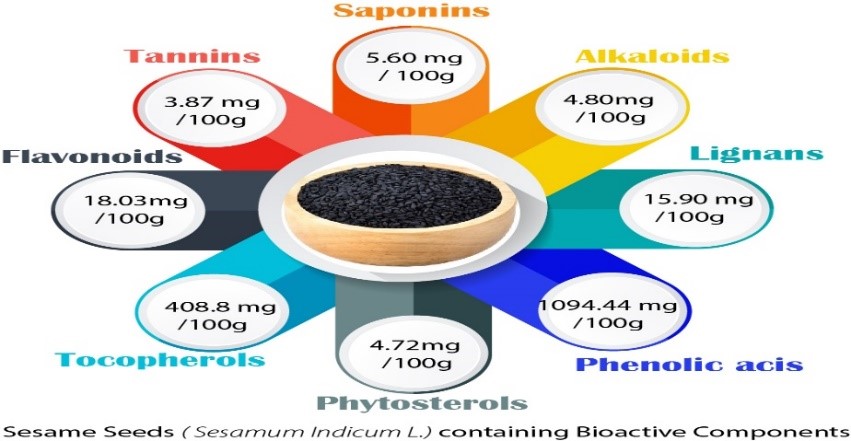Nutritional and Therapeutic Potential of Sesame (Sesamum Indicum L.) A Comprehensive Review
Keywords:
Bioactive Compounds, Cardiovascular Health, Antioxidants, Functional Foods, Sesame OilAbstract
Sesame seeds (Sesamum indicum L.) are nutrient-dense and highly adaptable oilseeds valued for their rich content of essential nutrients, including proteins, healthy fats, vitamins, and minerals. They are particularly renowned for their abundance of antioxidants such as sesamin and sesamolin, which offer numerous health benefits. Sesame seeds are also excellent sources of minerals like calcium, magnesium, iron, and zinc. In addition, they contain important fatty acids, notably linoleic acid and oleic acid (cis-9-octadecenoic acid), along with palmitic acid. They are a useful supplement to plant-based diets because of their high protein level, particularly in defatted sesame flour. Sesame seeds have demonstrated promise in treating chest pain, oxidative stress reduction, and Enhancement of blood lipid profiles, along with effects that combat diabetes, inflammation, and cancer. Their bioactive components have been investigated for their potential to promote skin health, increase liver function, and modify cholesterol levels. Sesame lignans' antioxidant qualities further support the seed's capacity to prevent chronic illnesses and enhance general health. Sesame seeds, both whole and processed, are utilized extensively in food applications. They are frequently added as a garnish to baked goods, as well as in making tahini, sesame oil, and snacks made with sesame. They are appropriate for the creation of functional and fortified foods because of their high nutritional value and practical benefits, to improve human health.



















